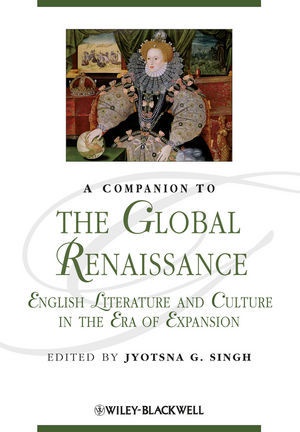Read more
Informationen zum Autor Jyotsna G. Singh is a Professor at Michigan State University! where she teaches early modern literature and culture! post-colonial theory! translation studies! and gender and race studies. Her published works include Colonial Narratives/Cultural Dialogues: 'Discovery' of India in the Language of Colonialism (1996); The Weyward Sisters: Shakespeare and Feminist Politics (co-authored! with Dympna Callaghan and Lorraine Helms! 1994); and Travel Knowledge: European 'Discoveries' in the Early Modern Period (co-edited with Ivo Kamps! 2001). She has received several research fellowships! including at the Folger Shakespeare Library!Queen Mary! University of London! and the John Carter Brown Library at Brown University. She has also been invited to direct two workshops on "Early Modern Anglo Muslim Encounters" at the Renaissance Center of the Newberry Library! in Chicago. She is currently working on a monograph on early English Slave Trade. Klappentext The storied achievements of the Renaissance were not simply the result of a cultural rediscovery of shared European classical traditions. A Companion to the Global Renaissance presents a more complex perspective that considers England's commercial and cross-cultural interactions with the New and Old Worlds of the Americas! Africa! and the East! as well as with Northern Europe. By illustrating how English culture and literature of the sixteenth and seventeenth centuries were shaped by emerging long-distance mercantile! proto-colonial! and cultural economies of exchange! this innovative collection presents a new history of globalization.After introducing globalization's theoretical underpinnings! twenty one newly-commissioned essays collectively illustrate how twentieth-century globalization was the result of a lengthy and complex historical process linked to the emergence of capitalism and colonialism. These wide-ranging chapters examine such topics as England's trading companies and the flow of labor and capital; exploration and cartography; travel and empire; domestic consumerism! money! and material culture; East-West relations and Islam; visual representations and aesthetic theories of and by cultural 'others'; gender and race struggles within the new economies and cultures; the global dimensions of Renaissance literature; and global drama on the cosmopolitan English stage.With academic rigor and critical authority! A Companion to the Global Renaissance: English Literature and Culture in the Era of Expansion challenges popular notions of Renaissance history and presents fascinating new insights into the roots of globalization. Zusammenfassung This exciting new Companion explores the interactions between Europe and other peoples of both the New and Old worlds during the English Renaissance, and their effect on the literature, culture, art, and history of the period. Inhaltsverzeichnis List of Illustrations ixNotes on Contributors xAcknowledgments xviIntroduction: The Global Renaissance 1Jyotsna G. SinghPart I: Mapping the Global 291 The New Globalism: Transcultural Commerce! Global Systems Theory! and Spenser's Mammon 31Daniel Vitkus2 "Travailing" Theory: Global Flows of Labor and the Enclosure of the Subject 50Crystal Bartolovich3 Islam and Tamburlaine's World-picture 67John Michael Archer4 Traveling Nowhere: Global Utopias in the Early Modern Period 82Chloë HoustonPart II: "Contact Zones" 995 The Benefi ts of a Warm Study: The Resistance to Travel before Empire 101Andrew Hadfield6 "Apes of Imitation": Imitation and Identity in Sir Thomas Roe's Embassy to India 114Nandini Das7 A Multinational Corporation: Foreign Labor in the London East India Company 129Richmond Barbour8 Where was Iceland in 1600? 149Mary C. Fuller9 East by North-east: The English among the Russians! 1553-1603 163Gerald MacLean10 The Politics of Identity: William Adams! John Saris! and the Eng...
List of contents
List of Illustrations ix
Notes on Contributors x
Acknowledgments xvi
Introduction: The Global Renaissance 1
Jyotsna G. Singh
Part I: Mapping the Global 29
1 The New Globalism: Transcultural Commerce, Global Systems Theory, and Spenser's Mammon 31
Daniel Vitkus
2 "Travailing" Theory: Global Flows of Labor and the Enclosure of the Subject 50
Crystal Bartolovich
3 Islam and Tamburlaine's World-picture 67
John Michael Archer
4 Traveling Nowhere: Global Utopias in the Early Modern Period 82
Chloë Houston
Part II: "Contact Zones" 99
5 The Benefi ts of a Warm Study: The Resistance to Travel before Empire 101
Andrew Hadfield
6 "Apes of Imitation": Imitation and Identity in Sir Thomas Roe's Embassy to India 114
Nandini Das
7 A Multinational Corporation: Foreign Labor in the London East India Company 129
Richmond Barbour
8 Where was Iceland in 1600? 149
Mary C. Fuller
9 East by North-east: The English among the Russians, 1553-1603 163
Gerald MacLean
10 The Politics of Identity: William Adams, John Saris, and the English East India Company's Failure in Japan 178
Catherine Ryu
11 The Queer Moor: Bodies, Borders, and Barbary Inns 190
Ian Smith
Part III: Networks of Exchange: Traveling Objects 205
12 Guns and Gawds: Elizabethan England's Infi del Trade 207
Matthew Dimmock
13 Cassio, Cash, and the "Infidel 0": Arithmetic, Double-entry Bookkeeping, and Othello's Unfaithful Accounts 223
Patricia Parker
14 Seeds of Sacrifice: Amaranth, the Gardens of Tenochtitlan and Spenser's Faerie Queene 242
Edward M. Test
15 "So Pale, So Lame, So Lean, So Ruinous": The Circulation of Foreign Coins in Early Modern England 262
Stephen Deng
16 Canary, Bristoles, Londres, Ingleses: English Traders in the Canaries in the Sixteenth and Seventeenth Centuries 279
Barbara Sebek
17 "The Whole Globe of the Earth": Almanacs and Their Readers 294
Adam Smyth
18 Cesare Vecellio, Venetian Writer and Art-book Cosmopolitan 305
Ann Rosalind Jones
Part IV: The Globe Staged 323
19 Bettrice's Monkey: Staging Exotica in Early Modern London Comedy 325
Jean E. Howard
20 The Maltese Factor: The Poetics of Place in The Jew of Malta and The Knight of Malta 340
Virginia Mason Vaughan
21 Local/Global Pericles: International Storytelling, Domestic Social Relations, Capitalism 355
David Morrow
Index 378

